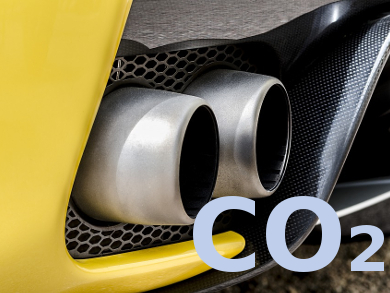Global CO2 emissions are expected to rise this year, according to estimates by Corinne Le Quéré, University of East Anglia, Norwich, and colleagues of the Global Carbon Project. As current estimates show, humanity is expected to blow around 41 billion tons of carbon dioxide into the earth’s atmosphere in 2017. After three years of stagnation, this would for the first time again increase annual CO2 emissions by around 2 %.
China is the largest producer of greenhouse gases in the world and responsible for 28 % of global CO2 emissions. In the past two years, the People’s Republic reported a decline in its output. This year, however, emissions will rise by up to 3.5 %. The reason for this is the increased combustion of coal, oil, and gas, which the team attributes among other things to the recent strengthening of the economic growth in the country. In addition, lack of rain has led to less electricity being produced by Chinese hydroelectric power plants.
India’s CO2 emissions will grow by 2 %. Over the past decade, emissions have increased on average by 6 % annually. According to the researchers, the decline could be influenced by government intervention in the economy.
Although President Trump has terminated the climate agreement, the United States is reducing its output by 0.4 % in 2017. In the past decade, however, an average of minus 1.2 % per year was achieved. For the European Union, a decline of 0.2 % is expected. Part of the problem is that Germany is not progressing with its climate protection projects.
It is to be hoped that the increase in emissions in 2017 will be an outlier and does not show changes that will cause an upward trend in the coming years.
- Global Carbon Budget 2017,
Corinne Le Quéré, Robbie M. Andrew, Pierre Friedlingstein, Stephen Sitch, Julia Pongratz, Andrew C. Manning, Jan Ivar Korsbakken, Glen P. Peters, Josep G. Canadell, Robert B. Jackson, Thomas A. Boden, Pieter P. Tans, Oliver D. Andrews, Vivek K. Arora, Dorothee C. E. Bakker6, Leticia Barbero, Meike Becker, Richard A. Betts, Laurent Bopp, Frédéric Chevallier, Louise P. Chini, Philippe Ciais, Catherine E. Cosca, Jessica Cross, Kim Currie, Thomas Gasser, Ian Harris, Judith Hauck, Vanessa Haverd, Richard A. Houghton, Christopher W. Hunt, George Hurtt, Tatiana Ilyina, Atul K. Jain, Etsushi Kato, Markus Kautz, Ralph F. Keeling, Kees Klein Goldewijk, Arne Körtzinger, Peter Landschützer, Nathalie Lefèvre, Andrew Lenton, Sebastian Lienert, Ivan Lima, Danica Lombardozzi, Nicolas Metzl, Frank Millero, Pedro M. S. Monteiro, David R. Munro, Julia E. M. S. Nabel, Shin-ichiro Nakaoka, Yukihiro Nojiri, X. Antoni Padín, Anna Peregon, Benjamin Pfeil, Denis Pierrot, Benjamin Poulter, Gregor Rehder, Janet Reimer, Christian Rödenbeck, Jörg Schwinger, Roland Séférian, Ingunn Skjelvan, Benjamin D. Stocker, Hanqin Tian, Bronte Tilbrook, Ingrid T. van der Laan-Luijkx, Guido R. van der Werf, Steven van Heuven, Nicolas Viovy, Nicolas Vuichard, Anthony P. Walker, Andrew J. Watson, Andrew J. Wiltshire, Sönke Zaehle, Dan Zhu,
Earth System Science Data Discussions 2017.
https://doi.org/10.5194/essdd-2017-123




